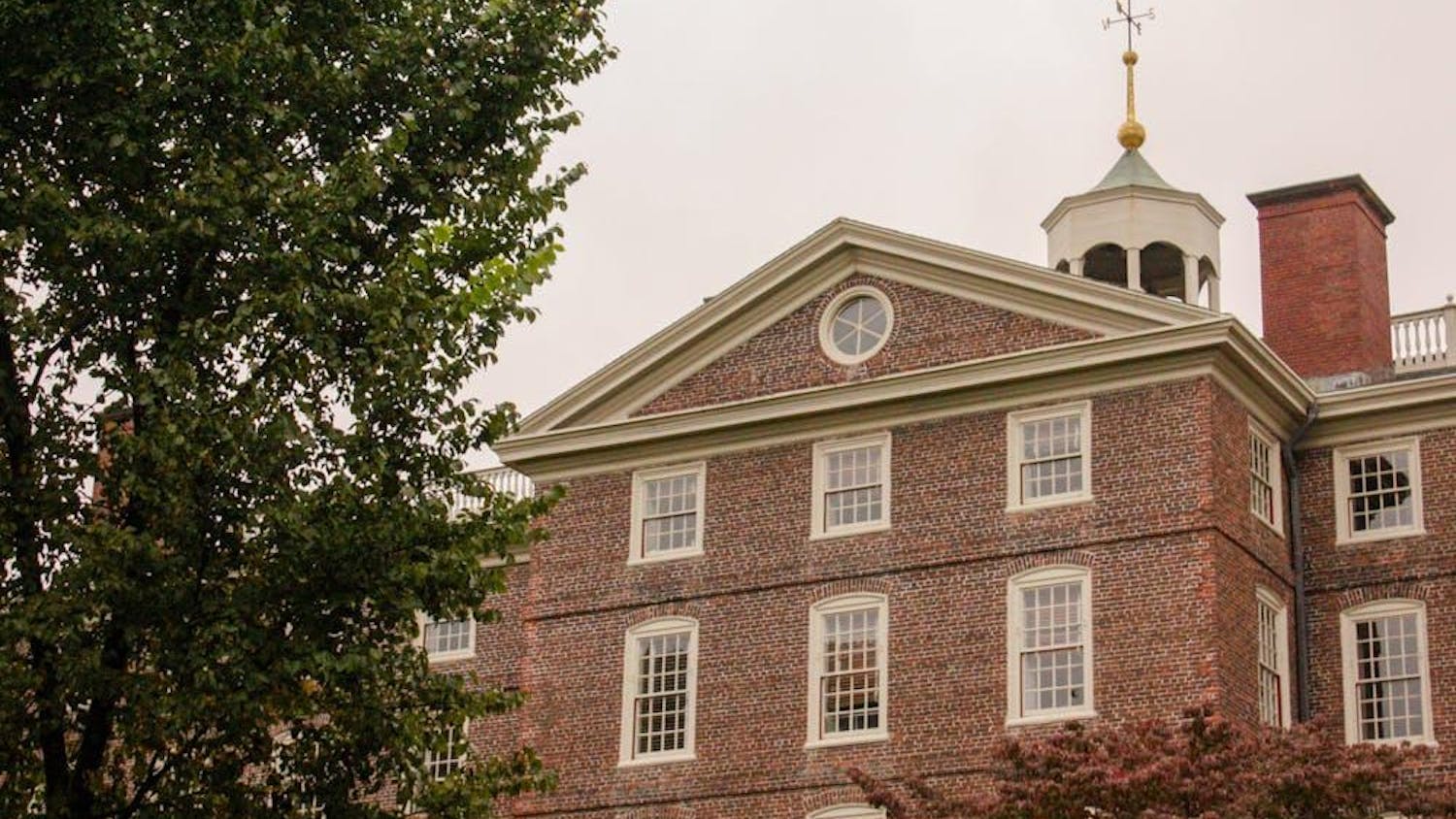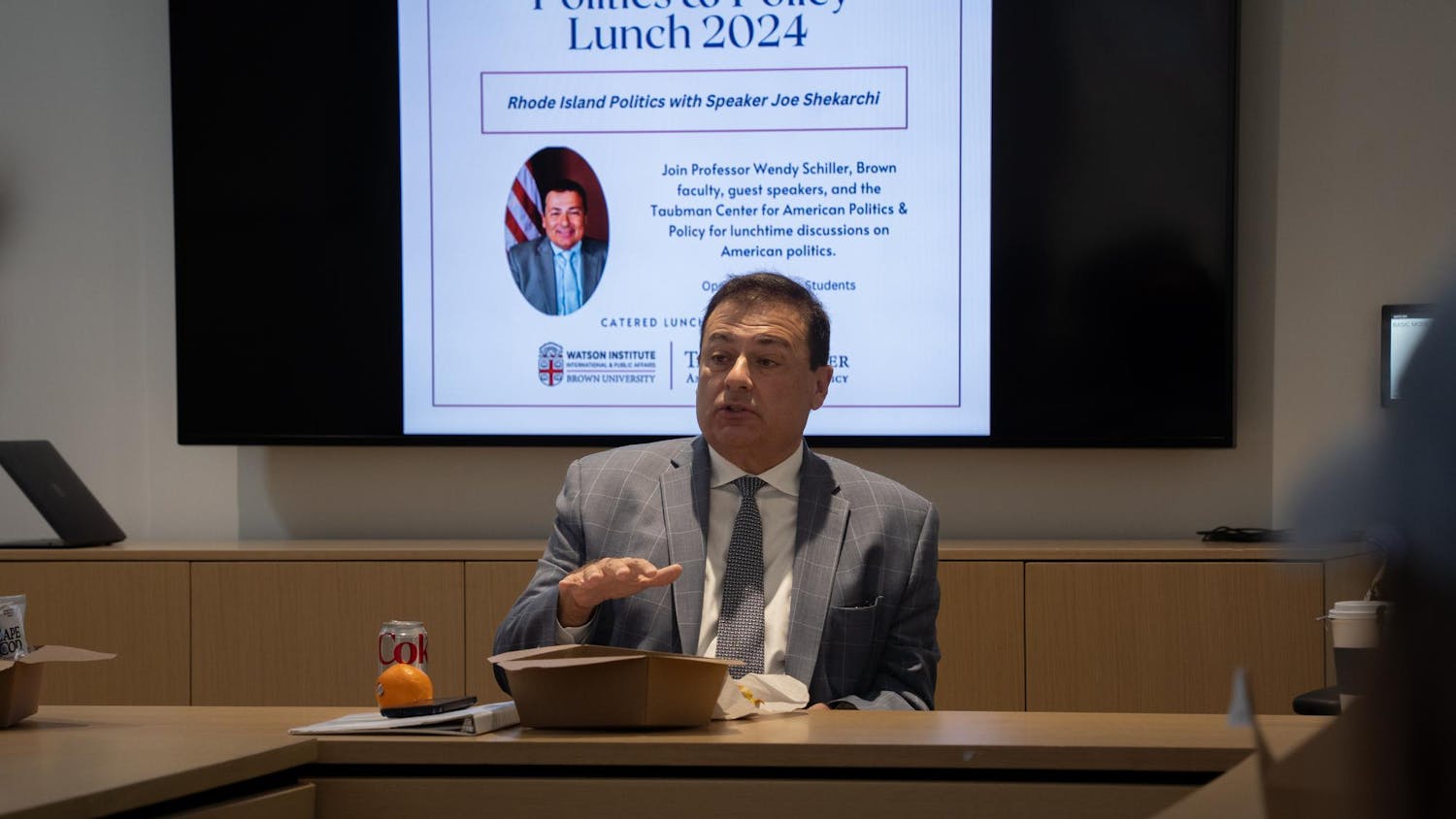In his recent book, "The Good, The Bad, and the Economy," Professor of Economics Louis Putterman explores the persistence of economic inequality despite vast technological improvements in modern society. His most recent research focuses on behavioral economics. As part of a new series highlighting faculty members at the University, Putterman sat down with The Herald to discuss the book and the way his work unites anthropology and economics.
The Herald: To begin, could you explain your academic interests and some of your scholarly work?
I've been at Brown for a little over 30 years, so my interests have evolved a lot. I was originally focusing on economic development, specifically in Tanzania and China, but also on organization and production enterprises or firms. Midway through my career, I was focusing still on China a lot and, in the last decade to decade in a half, I have focused mostly on two areas. One is experimental and behavioral economics, where I conduct decision experiments, some of which students are familiar with through the (Brown University Social Science Experimental Laboratory). The other thing that I work on is long-run economic growth or comparative development.
In a sense, you strayed from your academic roots with this new book. What made you want to write a book geared toward a more general audience?
Well, I've always hoped that what I do professionally has some relevance to the real world. I became a social scientist, in general, and an economist, in particular, because I hoped that that is a way to contribute to addressing people's problems - to helping to make better what's wrong with the world.
How did your experience writing this book differ from your more "scholarly" works?
The style of writing is very different, and I actually was trying my hand at it for more than 10 years. An earlier attempt didn't quite pan out as I hoped, and it morphed into a semi-academic book, which is called "Dollars and Change: Economics in Context." That's sort of on the boundary between a textbook and a general-audience book, but I continued trying to structure something that could succeed as a general-audience book. I also did a lot of reading of books for general audiences by mostly historians, but also people in evolutionary biology (and) psychologists. I read a lot of books trying to convey ideas from scientific research and academic research to broad audiences. Partly to get some insight into how to pitch my material - what the right style would be. It is a very different skill.
What inspired or sparked the idea behind "The Good, the Bad, and the Economy?"
Basically it's the idea that the human social world that we inhabit seems a lot less ideal than it could be. To put it really simply: Why is the world a rotten place? Examples of this rottenness are many, but to list a few of them: It includes the existence of poverty, in rich countries but especially in poor countries, it includes high levels of economic insecurity for people. Even in rich countries, it includes high levels of stress because of the demands of economic survival or success - trying to become economically successful and acquire a higher living standard, more material goods - and in a very narrow sense, just looking at the way the economy functions, the seeming irrationality that we have idle productive capacities. We have people who want to work but can't find work, we have factories that are idle, and at the same time, we have a vast amount of unmet needs: people who are hungry, people who are not clothed, people who are not properly housed. So is this some organizational failure, a failure to use our resources in a rational way?
What do you hope readers take away from the book?
There's a bunch of links. The first link is that our problems are at least as much caused by human nature or human psychology or the motivational requirements of getting people to do things as they are caused by any sort of material conditions - like not having made the necessary scientific discoveries or found sufficient resources. Organizing and motivating are essential to what the world succeeds at and what the world fails at. Therefore we need to understand human nature and human behavior, first and foremost, before we can attempt to make the world better. In a sense, that's just an advertisement for social science - that it's important.
The next link would be that there's a narrow or old-fashioned view proposed by economics against which I am arguing throughout the book. The narrow view is that people are fundamentally self-interested and rational, so human behavior is explained by the pursuit of self-interest, and this self-interest is not constrained by moral concerns, according to this narrow viewpoint. The economic theory has traditionally been developed to show what are the implications of that assumption about human nature, and how can it explain various observations about the real world. How do we tweak or manipulate our rational self-interested interests to explain our organizational or other outcomes? I would argue that this selfish, rational view of human nature implies that there are sharp constraints or limits on the ability of people to cooperate with each other to achieve common ends. Much of the book deals with the research in behavioral economics and related fields showing that people are much more complex than this model of rational self-interest implies.
At Brown, students are encouraged to explore their wide variety of interests, but balancing interests in different disciplines is always difficult - how do you reconcile and manage interests as varied as economics and anthropology, intellectually?
I guess the short answer is I don't know, but I just did it. Partly, it's a matter of leaving some time just to explore, at least to some modest degree, areas outside of a narrow specialty. I feel the last 20 years, especially, have convinced me that it is possible for non-specialists to understand a lot about many fields of knowledge without necessarily understanding all of the details. So, you do not have to overspecialize.
And how do you apply this balance to the courses that you teach?
I always look at the topics that I teach about from a variety of viewpoints and try to introduce alternative points of view and consider the larger context. So, for example, when looking at the economy of China, I bring in the research I've been doing about comparative development in the long run, trying to explain why one might expect China to be a dynamic economy today, based on an understanding of which regions were most economically dynamic in the world over a thousand-year period. I find this very relevant.
How do you maintain the balance between teaching, doing research and serving as a political commentator? And do you think its important for academics to attempt this balance?
Well, as to how to maintain it, I'm very new at trying to do the more public kind of writing and the academic at the same time, so it's hard to say whether I will succeed. But there are only 24 hours in the day, so you just have to make a lot of hard decisions about what you are going to do a little more of and what you are going to do a little less of. It's a
lso the case that I've been a tenured professor for a long time, and I have leeway that a junior professor or graduate student just hoping to land the job doesn't necessarily have. So hopefully one finds a situation that gives you that degree of freedom, but it can take some time. It's certainly a matter of judgment. I guess I would say - with a touch of humor - that I think I'm in favor of political reactionary economists sticking to narrowly academic work, and only progressive ones should get into the public arena.




